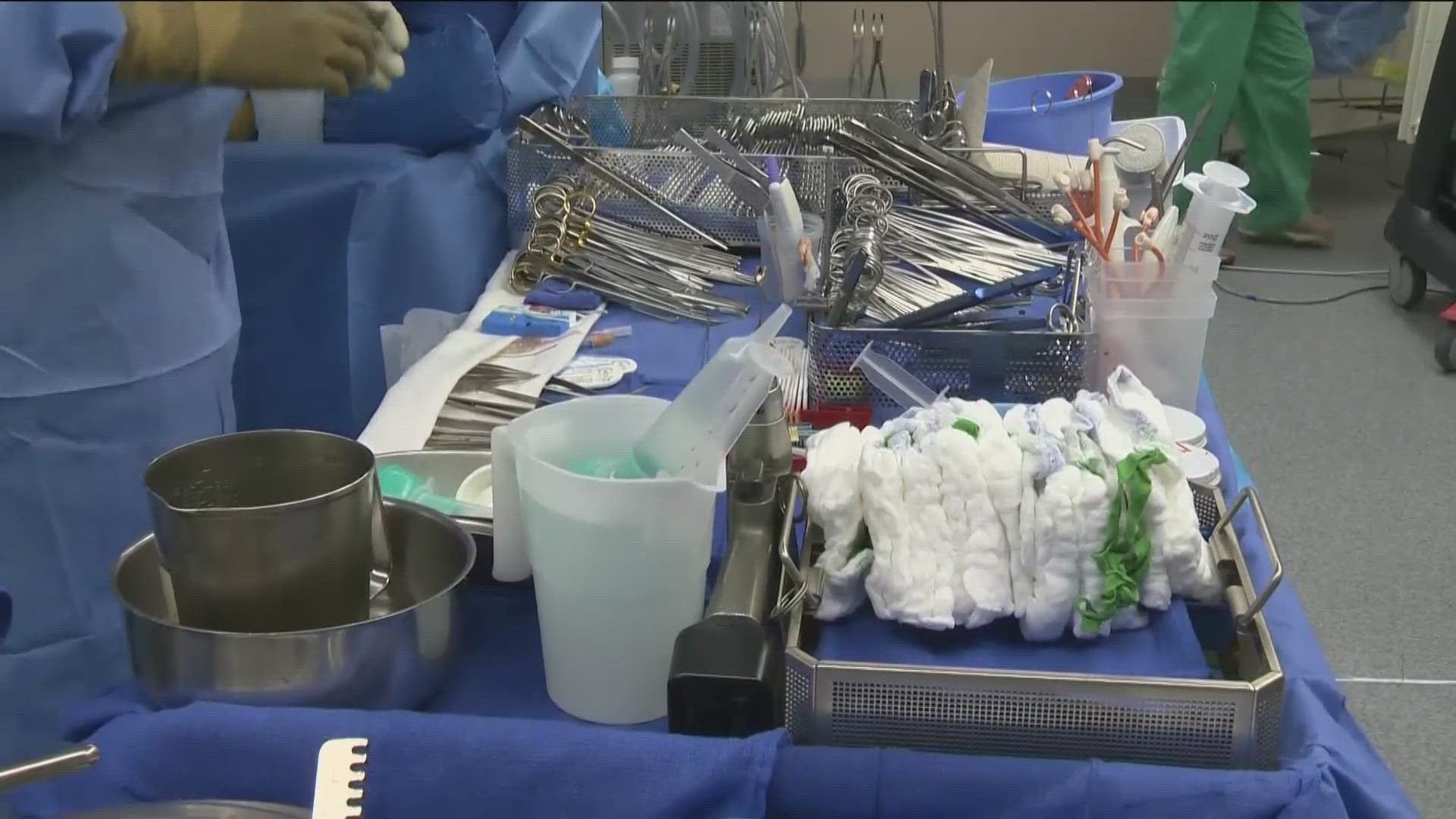SAN DIEGO — A new medical study published by local doctors found a startling number of kids in southern California could qualify for safe weight loss surgery.
But access to pediatric bariatric surgery is limited.
A Rady Children’s Hospital gastroenterologist says severely obese kids in southern California are primarily Hispanic and Black males and those living in disadvantage communities.
Bariatric surgery is not common practice among pediatric patients but the doctor hopes that could change.
The American Academy of Pediatrics (AAP) says severe obesity among youth is an epidemic within an epidemic.
In 2023 it set new guidelines that children ages 13-18 should have greater access to safe weight loss surgery.
“We want to know how many children is that? We didn’t really have a good answer to that,” said Jeffrey Schwimmer, M.D.
He is a Rady Children’s gastroenterologist who partnered with Kaiser Permanente for a study that was published by the AAP. It found that of the more than half a million severely obese teens in southern California, 4.4% qualified for bariatric surgery.
“It’s a big number. If you look at 100 teenagers, it’s going to be approximately 22 of those 100, who will have obesity, and of those 22, it’s going to be about five that will meet the clinical criteria for metabolic and bariatric surgery,” said Schwimmer.
He says pediatric weight loss surgery is not cosmetic, rather it could prevent serious health conditions into adulthood such as liver and cardiac disorders, hypertension, and diabetes.
“Patients with severe obesity as teenagers who’ve had surgery at centers of excellence, do well long term. They’re much less likely to still have to diabetes, they tend to have a better quality of life better mobility. We know from adult data that they have lower rates of heart disease, lower rates of cancer in the long run,” said Schwimmer.
But pediatric weight loss surgery is not common practice among children’s hospitals in the country, there are only three in California; Children's Hospital Los Angeles, UCLA Health and Stanford Children's Health.
Rady Children’s provides programs for obese patients to work on lifestyle, medication and management but it does not perform bariatric surgery.
“We’re having conversations about when we will be able to provide weight loss surgery as one of these tools I expect that will happen in the not too distant future,” said Schwimmer.
Dr. Schwimmer hopes this research will create greater access to safe pediatric weight loss surgery to improve the quality of life and longevity for children.
“It’s not just about having an operation. There’s six months of care that lead to having surgery, as well as a lifetime of care following surgery,” said Schwimmer.
When talking about child obesity, Dr. Schwimmer uses the acronym SHINE.
- S is for stigma, he says people need to stop the blame.
- H is for health, obese children need to be screened for health conditions.
- I is for individual, each child is different and not all need surgery.
- N is for nutrition.
- E is for early intervention.
Schwimmer says parents can see on their child’s growth chart as early as five years old if they are at risk for obesity.
California SB 839 would have required comprehensive coverage for obesity treatments but it failed this month.
The average cost for bariatric surgery is about $20,000. Doctors say the short-term costs outweigh the long-term health costs and conditions.
WATCH RELATED: FDA approves new obesity drug for long-term weight management

